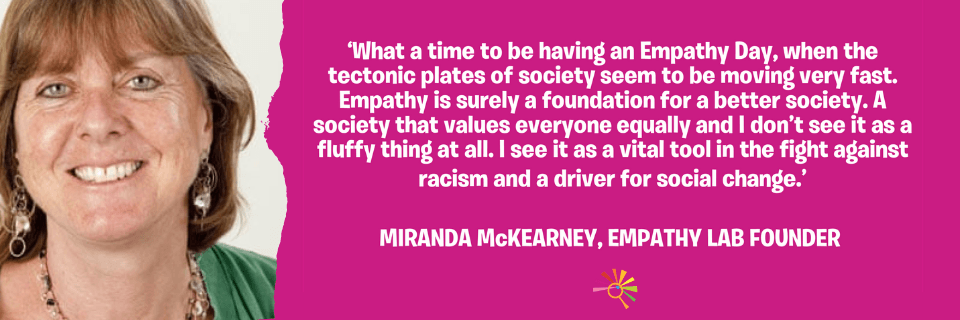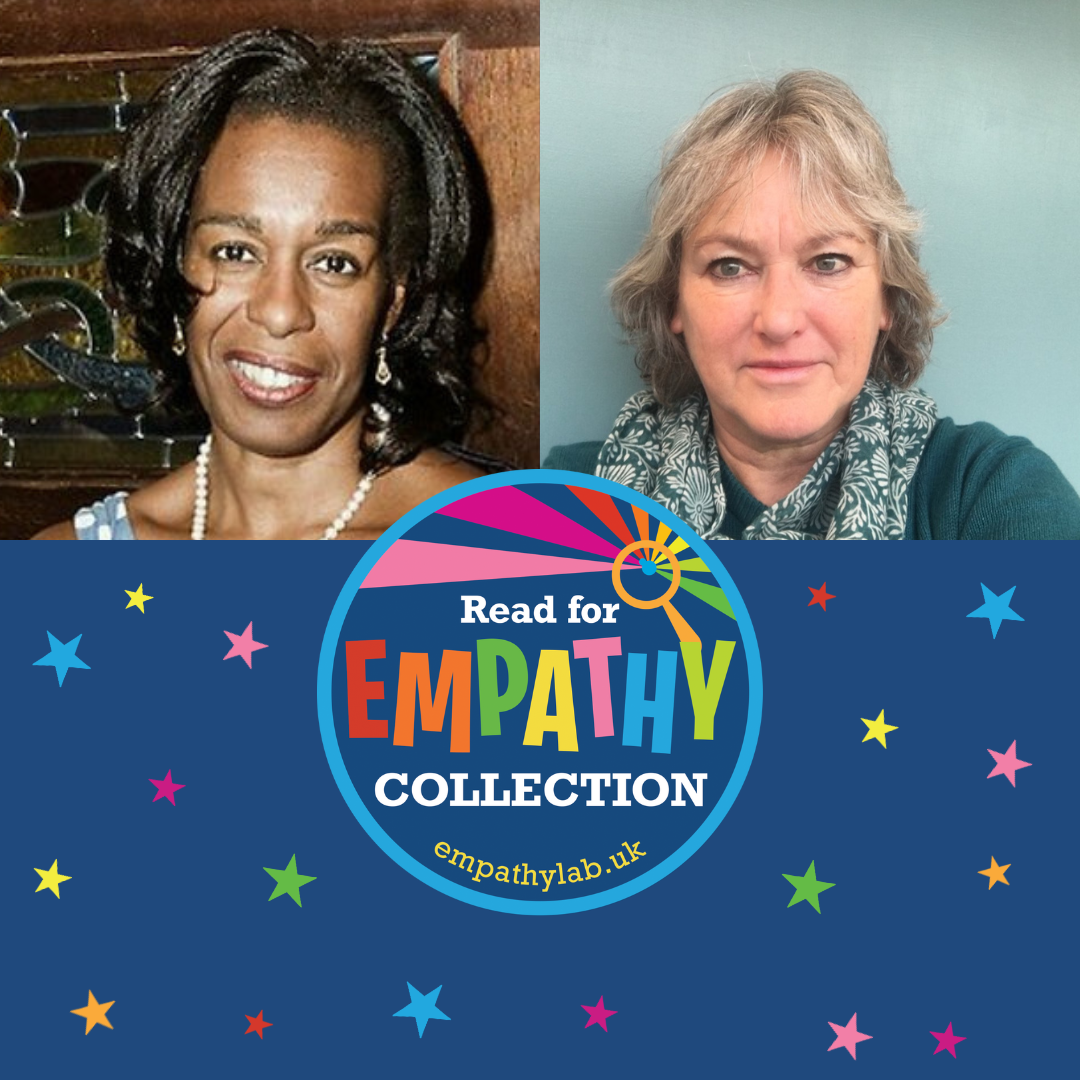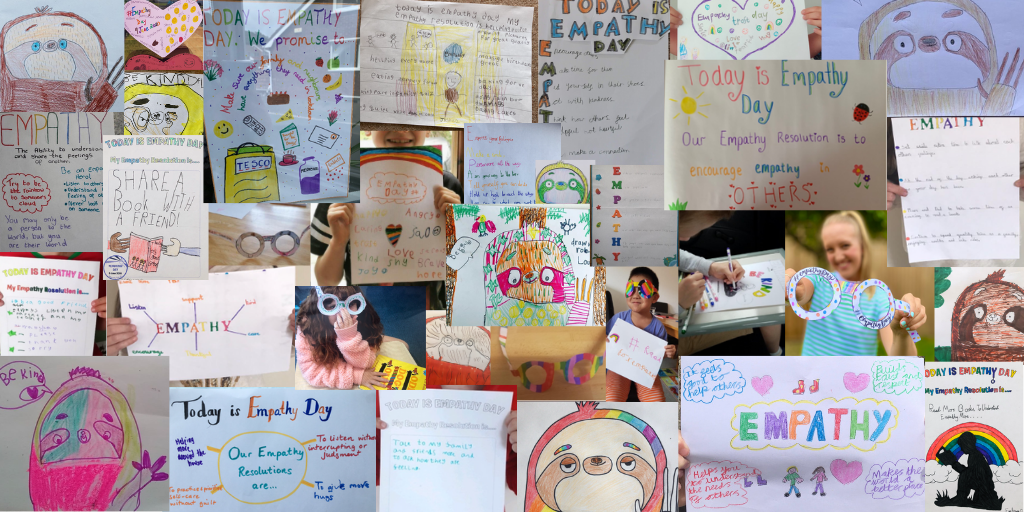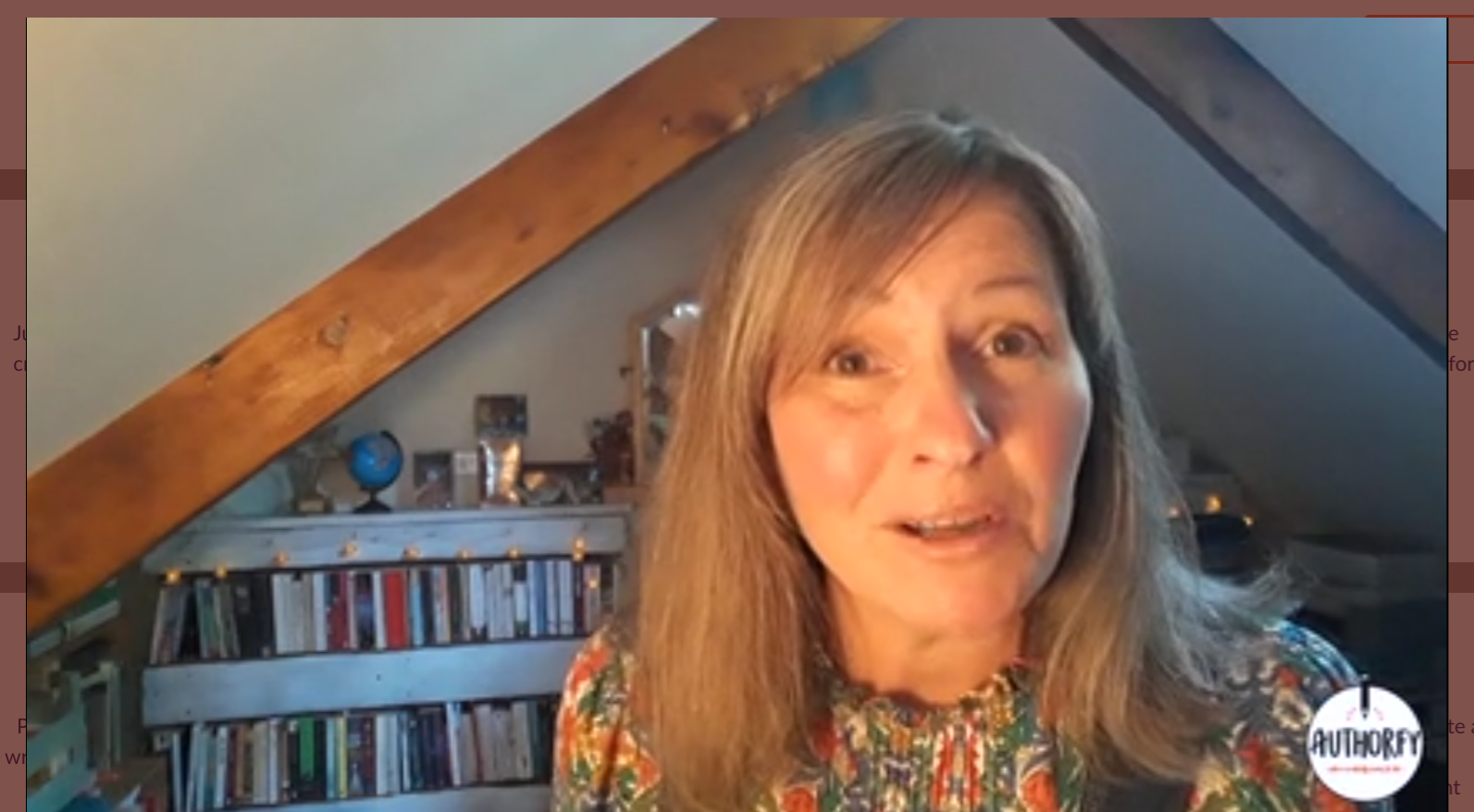Celebrating Empathy Day 2020
- By EmpathyLab
- •
- 10 Jun, 2020
- •
Thank you to everyone who joined in with our countdown to Empathy Day and our exciting online author-led programme on 9 June!
he enthusiasm has been amazing and it is clear that there is a nationwide hunger for a new empathy movement. With our activities split across three key elements – READ, CONNECT, ACT – we were thrilled to see how many children, teachers, parents and librarians took part.
Despite lockdown, our school and library involvement was higher than ever. We trended in the top ten on UK Twitter for 7 consecutive hours, reaching no.3 for 2 hours and no.2 for 1 hour. You can still watch videos from the day here on our YouTube channel.
The day ended with our evening event, The Empathy Conversation – a panel with Children’s Laureate Cressida Cowell, psychologist Professor Robin Bannerjee, author Muhammad Khan and EmpathyLab founder Miranda McKearney – being broadcast through our Facebook page. The conversation has had 4,300 views and can still be watched here. A transcript is also available – please acknowledge EmpathyLab if you quote from it.
We’re looking forward to working with you all to build on it, because now, more than ever, every day should be an empathy day.

Thank you...
…to all our amazing authors and illustrators. Like all of us, they have been stuck at home with very limited technical facilities but have risen to the challenge magnificently and have all been incredibly generous with their time, energy and creativity.
What fabulous empathy ambassadors!
Empathy Everywhere
As well as our online programme there were lots of empathy related events all over the country. Here's just a small selection...
Author Kate Milner reads her book It's A No Money Day as part of Manchester Libraries celebration of Empathy Day. This book deals with the painful reality of poverty sensitively and without stigma. The video will be permanently available on our Empathy Read Alouds page.
Welsh Laureate, Eloise Williams set a special Empathy Day writing challenge as part of the daily Authorfy ten-minute writing challenges. Click on the image below and scroll to Eloise to have a go!
Konnie Huq tells us all about empathy, reads from Planet Omar by Zanib Mian and tries some Empathy Day activities!
A lovely video from Ysgol Plascrug School. Clwb Clyd - Katie and the Waterlily Pond - Monet for a Day & Empathy Day.

The collection consists of 65 books for 3-16 year olds, each chosen for its unique contribution in building young people’s empathy.
The primary collection for 3-11 year has 40 books; the secondary collection features 25 books for 12-16 year olds.

I am very fortunate to have been on the Read for Empathy booklist judging panel over the past few years.
I’m also a practising classroom teacher so I would like to consider how the books on the list can influence what happens in a school.
Firstly, along with many other schools, reading aloud is an important part of our school day, every day, almost without fail. All the teachers at my school are aware of the EmpathyLab booklist, and often use it as a basis for choosing their next class read. Knowing that the books touch on important aspects of our children’s lives is key; we all understand how important representation is in stories. These are books that make a difference, that lead to passionate discussions in the classroom and can actually influence children’s behaviour .
The booklists become increasingly valuable. We have a couple of hundred empathy texts at our school – they are there on merit. Staff often refer to previous lists if there as a particular aspect of empathy that they want to include or share with the children.
Our Year 6 Reading Champions often seek out picture books from the list to take in to KS1 and Reception when they read stories, so we already have the next generation educating each other about the importance of empathy. I love the fact they often meet beforehand (they tend to work in twos) to discuss what questions they might want to ask the children once the story has been read. After each booklist is released, they also spend several of their Friday recommendation slots in assembly talking about a couple of the books. We have parents in on our Friday assembly so it’s a great way to share the texts with them and help raise their awareness of our work.
We often use the books as our teaching texts for English, partly because they encourage excellent writing but also because they provide a fantastic opportunity for our pupils to develop their empathy skills. The Wild Robot by Peter Brown, Miraculous Journey of Edward Tulane by Kate DiCamillo, Freedom by Catherine Johnson, Eyes that Kiss in the Corners by Joanna Ho and A Street Dog Named Pup by Gill Lewis are all books that have made in into our English curriculum as a result of being on one of the Read for Empathy booklists. Well, that’s not strictly true - Edward Tulane was there before that as it’s one of my favourite ever books, but you hopefully take my point.
Reflecting on our empathy journey over the past few years, I’ve also found that the more books children read that address empathy, where they can relate to the characters and their choices, the more books they want to read. It’s almost a virtuous circle. Many begin to realise that such books can empower them to think about situations.
For example, as soon as we finished A Street Dog Named Pup last year, several of them immediately wanted to read other books by Gill Lewis. Because empathy is a thread that runs through much of her work ( Gorilla Dawn , Moon Bear , The Closest Thing to Flying and so on). Thanks to EmpathyLab's lists, I was able to point them in the direction of several other books, by her and others.
I think we agree that teaching children about empathy and providing them with opportunities to develop it is one of the most important gifts we can give them as adults. The fact that empathy has gone from being something that schools sort of understood a few years ago to being something that has got an increasingly solid evidence base is crucial.
There’s always been anecdotal evidence that reading stories is important for children and that it can change how they think but now that’s backed up with research. The empathy revolution (and it is a revolution) is only going to pick up more momentum over the next few years as the need for it becomes ever more apparent. Working in schools and in the world of children’s books means that we’re in the front line. There’s nowhere else I’d rather be.


